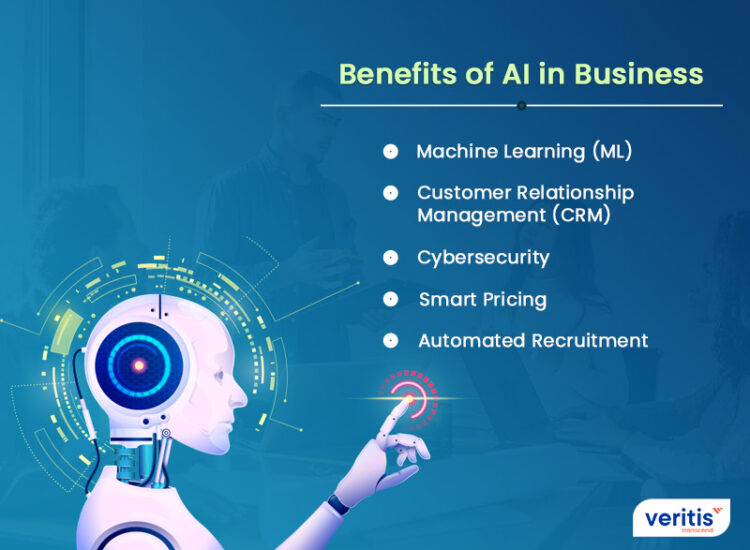Artificial Intelligence (AI) is a rapidly growing field that has been making significant impacts in various industries such as healthcare, finance, transportation, and many more. With the increasing use of AI technologies, there is a high demand for professionals with skills in this field. This demand has led to the rise of AI certification programs that aim to equip individuals with the necessary knowledge and skills to thrive in this ever-evolving industry.
Toc
Introduction to AI Certification
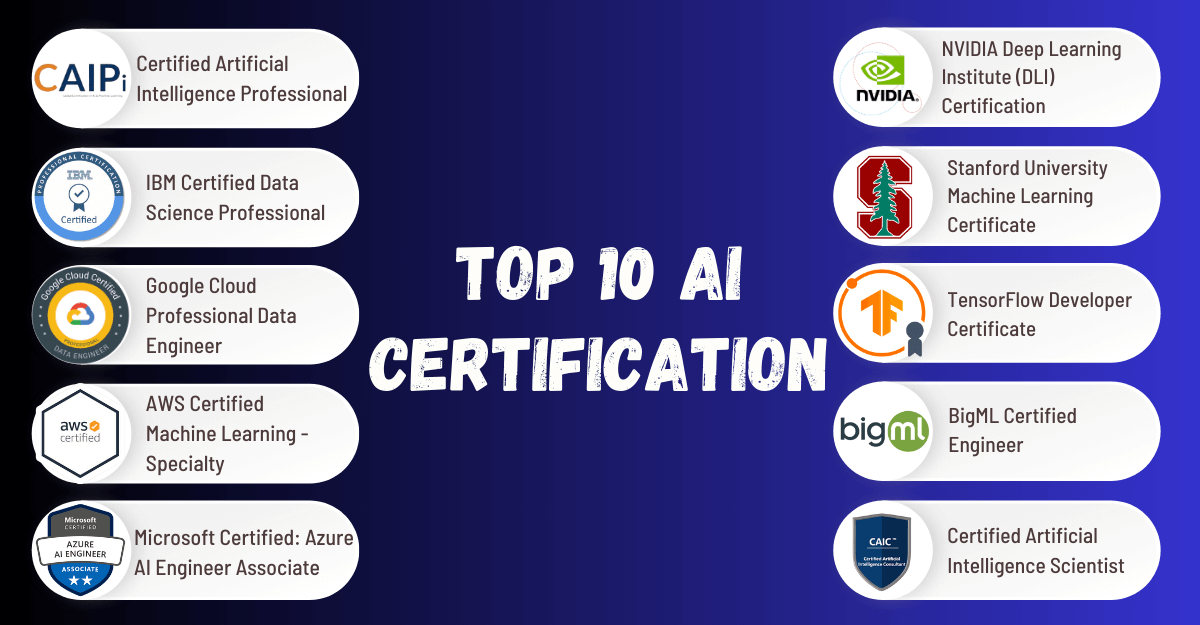
Artificial Intelligence (AI) is no longer just a futuristic concept—it’s an integral part of various industries today, from healthcare to finance, and even entertainment. Its growing relevance has opened up numerous opportunities for tech enthusiasts and professionals. If you’re looking to stay ahead in this rapidly evolving field, AI certification is becoming increasingly essential.
The Significance of AI Certification
Why should you consider getting an AI certification? For starters, it demonstrates your expertise and commitment to the field. Employers are increasingly looking for certified professionals who can bridge the skills gap and contribute to innovative projects. AI certification not only validates your knowledge but also showcases your dedication to staying current in a fast-paced industry.
Why Get Certified in AI?
Obtaining an AI certification can open up numerous opportunities for your tech career. Here are some reasons why you should consider getting certified in AI:
- Stay Relevant: As technology continues to advance at a rapid pace, it’s essential for professionals to upskill and stay relevant in their fields. AI certification programs provide the latest industry insights, tools, and techniques to keep you updated with the ever-changing landscape of AI.
- Career Growth: With the demand for AI professionals on the rise, getting certified can boost your career growth opportunities. It showcases your expertise and skills in this field, making you a valuable asset to any organization looking to integrate AI into their operations.
- Higher Salary Potential: Certified AI professionals are highly sought after by organizations willing to invest in this technology. This high demand for skilled professionals often results in higher salaries and better job offers.
Types of AI Certifications
There is a wide range of certifications available for individuals looking to get certified in AI. These certifications vary in their focus and level of expertise, catering to different roles within the field. Some popular types of AI certifications include:
- Machine Learning (ML) Certification: This certification is focused on developing skills related to designing, implementing, and optimizing ML models. It covers topics such as regression, classification, clustering, and deep learning.
- Natural Language Processing (NLP) Certification: NLP is a subfield of AI that deals with understanding human languages and processing them in a meaningful way for machines. This certification equips individuals with skills in building language models, sentiment analysis, text summarization, and speech recognition.
- AI Ethics Certification: As AI continues to advance, there is a growing concern around its ethical implications. This certification focuses on understanding and addressing ethical issues related to the development and use of AI technologies.
Popular AI certifications
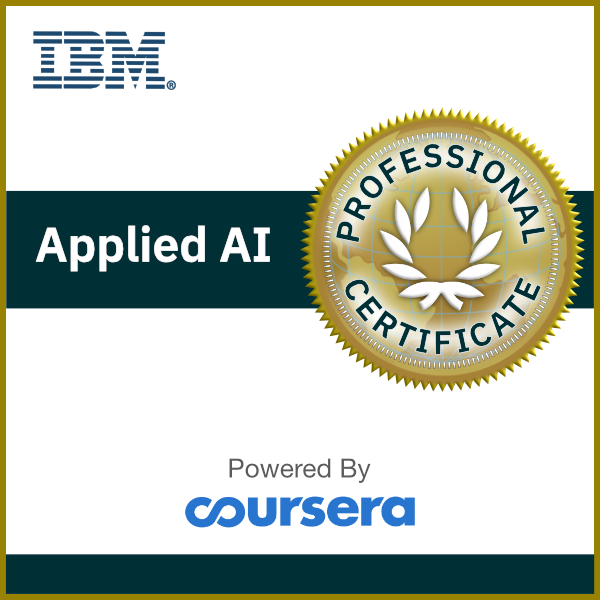
Some popular AI certifications that you can consider pursuing include:
General AI Certifications
Several well-recognized general AI certifications can help bolster your credentials and expand your knowledge in the field. Here are a few to consider:
- Google Cloud Professional Machine Learning Engineer: This certification validates your ability to design, build, and productionize ML models using Google Cloud technologies. It covers a wide range of topics, including data preparation, model training, and deployment.
- IBM AI Engineering Professional Certificate: Offered through Coursera, this certification is designed for those looking to gain foundational and advanced knowledge in AI and machine learning. It covers various key aspects, such as supervised and unsupervised learning, deep learning, and the application of AI in real-world scenarios.
- Microsoft Certified: Azure AI Engineer Associate: This certification focuses on implementing AI solutions on Microsoft Azure. It includes skills related to natural language processing, computer vision, and conversational AI, making it ideal for professionals looking to leverage Azure for AI applications.
- AWS Certified Machine Learning – Specialty: This certification showcases your expertise in designing, building, deploying, and maintaining machine learning solutions on Amazon Web Services. It is particularly beneficial for those aiming to work in environments that utilize AWS cloud services.
These certifications not only enhance your skill set but also make a statement about your commitment to pursuing a career in AI. Choosing the right certification aligns with your career goals and the specific areas of AI that interest you most.
Specialized AI Certifications
In addition to general AI certifications, there are specialized certifications that target specific domains within artificial intelligence. Pursuing one of these certifications can deepen your expertise and make you an even more competitive candidate in the job market.
- Deep Learning Specialization by Andrew Ng: Offered through Coursera, this specialization dives deep into neural networks and deep learning techniques. It covers everything from the foundations of deep learning to advanced techniques in convolutional and recurrent networks, making it perfect for those aiming to excel in this cutting-edge area of AI.
- Certified Analytics Professional (CAP): This certification is designed for professionals who wish to demonstrate their analytical skills and knowledge. It covers various analytics methods, including predictive modeling and data mining, linking these competencies to AI applications, and is well-suited for roles that require a blend of analytics and AI expertise.
- TensorFlow Developer Certificate: Recognized globally, this certification is aimed at developers looking to prove their proficiency in using TensorFlow for machine learning and deep learning tasks. With projects that involve real-world implementations, this certificate helps candidates showcase their abilities in building and training AI models.
- AI for Everyone: Another course by Andrew Ng, this non-technical course is great for managers and executives who want to understand how to harness the power of AI in their organizations. It focuses on the strategic implications of AI and how businesses can leverage AI technologies for growth and innovation, rather than the technical how-tos.
Choosing the right specialized certification can significantly enhance your skill set, demonstrating not only your knowledge but also your commitment to a specific area of artificial intelligence. As the field continues to evolve, staying informed and certified in the latest developments will ensure you remain a sought-after professional in the technology landscape.
Online Learning Platforms for AI Certifications
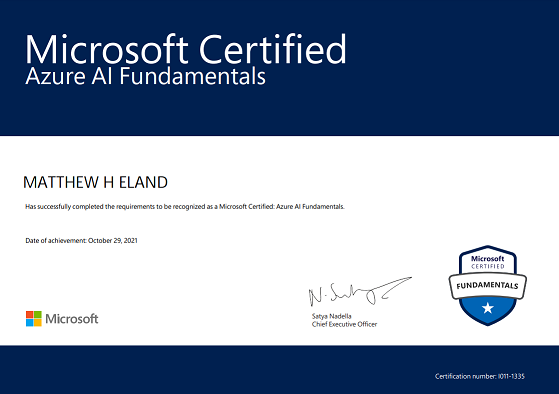
When considering AI certifications, it’s essential to choose the right online learning platform that offers comprehensive resources and support. Various platforms cater to different learning styles and needs, making education in artificial intelligence more accessible. Here are some notable platforms to explore:
Coursera
Coursera is a leading online learning platform that partners with top universities and organizations to provide a wide range of AI courses and certifications. Its offerings include both general and specialized AI programs, often taught by renowned professors and industry experts. Users can benefit from flexible schedules, allowing them to learn at their own pace. Additionally, Coursera provides hands-on projects and peer feedback, enhancing the overall learning experience and ensuring that participants can apply theoretical knowledge in practical settings.
edX
edX is another prominent online platform offering a variety of AI certifications from reputable institutions such as MIT and Harvard. It features both introductory courses and advanced specializations, covering topics like machine learning, data science, and AI ethics. edX also provides MicroMasters programs and professional certificates, which are recognized by employers and can significantly boost career prospects. The platform’s emphasis on high-quality content and academic rigour makes it a valuable choice for those serious about advancing their knowledge in artificial intelligence.
Udacity
Udacity’s Nanodegree programs focus on providing industry-specific skills in technology, including artificial intelligence and machine learning. With a project-based approach, learners can work on real-world projects that build a robust portfolio, showcasing their abilities to potential employers. Udacity’s collaboration with tech companies ensures that the curriculum remains relevant to current market demands, making it an attractive option for professionals looking to upskill or transition into the AI field.
LinkedIn Learning
LinkedIn Learning offers a plethora of courses designed to equip learners with essential AI skills, catering to both beginners and seasoned professionals. Users can explore various topics, from basic machine learning concepts to advanced techniques in natural language processing and computer vision. The platform allows individuals to learn at their own pace, with the added advantage of integration with LinkedIn profiles, which can demonstrate completed courses and skills to potential employers. Moreover, LinkedIn Learning’s subscription model allows access to a wide array of content, providing a cost-effective way to enhance one’s knowledge in artificial intelligence.
Pluralsight
Pluralsight is renowned for its tech-focused learning paths, including extensive courses on AI and machine learning. The platform emphasizes hands-on learning experiences, allowing users to apply what they’ve learned through interactive exercises and projects. Moreover, Pluralsight offers skill assessments that help learners identify their strengths and weaknesses, tailoring their learning experience to meet specific goals. With a focus on in-demand skills taught by experienced professionals, Pluralsight is a strong contender for anyone looking to deepen their understanding and capability in the rapidly evolving domain of AI.
Learning Pathways and Requirements
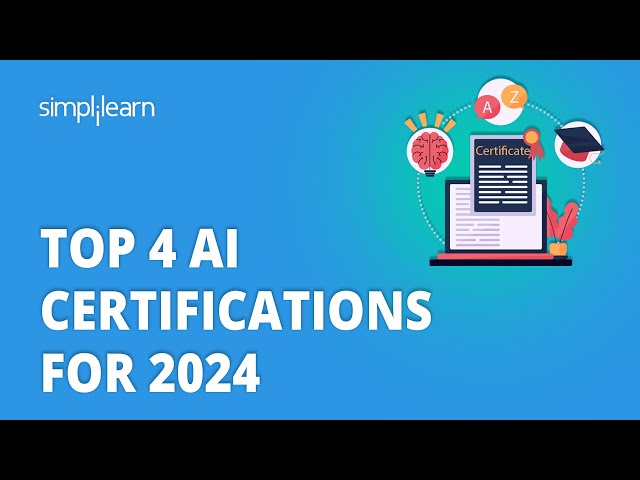
Each certification program has its own prerequisites, with some requiring prior education or experience in the field. It’s essential to research and understand the requirements before embarking on a chosen pathway. While some certifications may require a technical background, others are accessible to beginners through introductory courses. Additionally, some programs may have specific language or software proficiency requirements, and it’s crucial to assess one’s skills before enrolling.
Educational Requirements
To effectively pursue AI certifications, candidates should be mindful of the educational prerequisites stipulated by each program. A solid foundation in mathematics, particularly in statistics and linear algebra, is often essential, as these subjects play a crucial role in understanding machine learning algorithms. Furthermore, familiarity with programming languages such as Python can greatly facilitate the learning process, as they are frequently used in AI development. For those who lack formal education in these areas, many online platforms offer preparatory courses designed to build the necessary skills before diving into more specialized AI content. It’s advisable to assess one’s current knowledge level and seek resources that cater to individual learning needs, ensuring a productive and enriching educational experience in the realm of artificial intelligence.
Available Learning Pathways
When embarking on the journey to obtain AI certifications, it’s crucial to identify available learning pathways that align with your career goals and current expertise. Many platforms provide structured courses that gradually progress from foundational topics to advanced concepts. Here are some common pathways:
- Beginner Pathway: This pathway is ideal for those new to artificial intelligence. It usually includes introductory courses in programming (such as Python), fundamental concepts in AI, and basic mathematics. Emphasis is placed on building a solid foundation to facilitate deeper learning in subsequent courses.
- Intermediate Pathway: After completing the beginner courses, learners can move on to intermediate-level content, which often covers machine learning techniques, data analysis, and AI applications in real-world scenarios. Projects and case studies frequently feature in this stage to enhance practical understanding.
- Specialisation Pathway: For individuals looking to gain expertise in specific areas of AI, such as natural language processing or computer vision, specialisation pathways are available. These often comprise in-depth courses that focus on particular technologies, algorithms, and industry applications, ensuring that learners develop subject matter expertise.
- Professional Pathway: This pathway is designed for seasoned professionals wishing to enhance their credentials. It includes advanced certifications, MicroMasters, or even dedicated programs that address industry needs and trends. This option is perfect for individuals seeking to validate their skills and knowledge to advance their careers.
Understanding these pathways can help learners choose the right courses based on their current skill level, interests, and career aspirations, ensuring a targeted and effective approach to professional development in artificial intelligence.
Conclusion
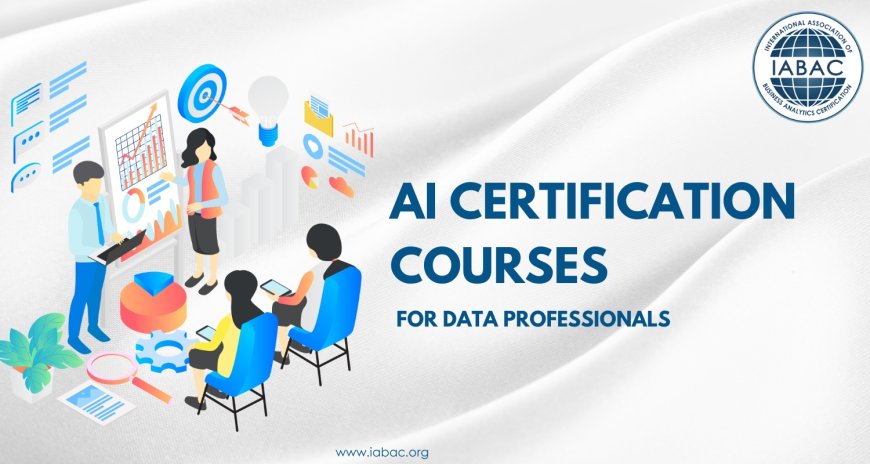
As the field of artificial intelligence continues to evolve rapidly, staying updated with the latest advancements and industry trends is paramount for professionals looking to maintain a competitive edge. Continuous learning not only solidifies existing knowledge but also introduces new techniques and tools that can transform how AI is applied across various sectors. Participation in forums, attending webinars, and networking with experts can also provide invaluable insights and opportunities for collaboration. Additionally, putting learned concepts into practice through personal projects or contributions to open-source initiatives can further reinforce skills and enhance one’s professional portfolio. By embracing a mindset of lifelong learning, individuals can effectively navigate the complexities of AI and leverage these advancements to drive innovation within their organisations.


